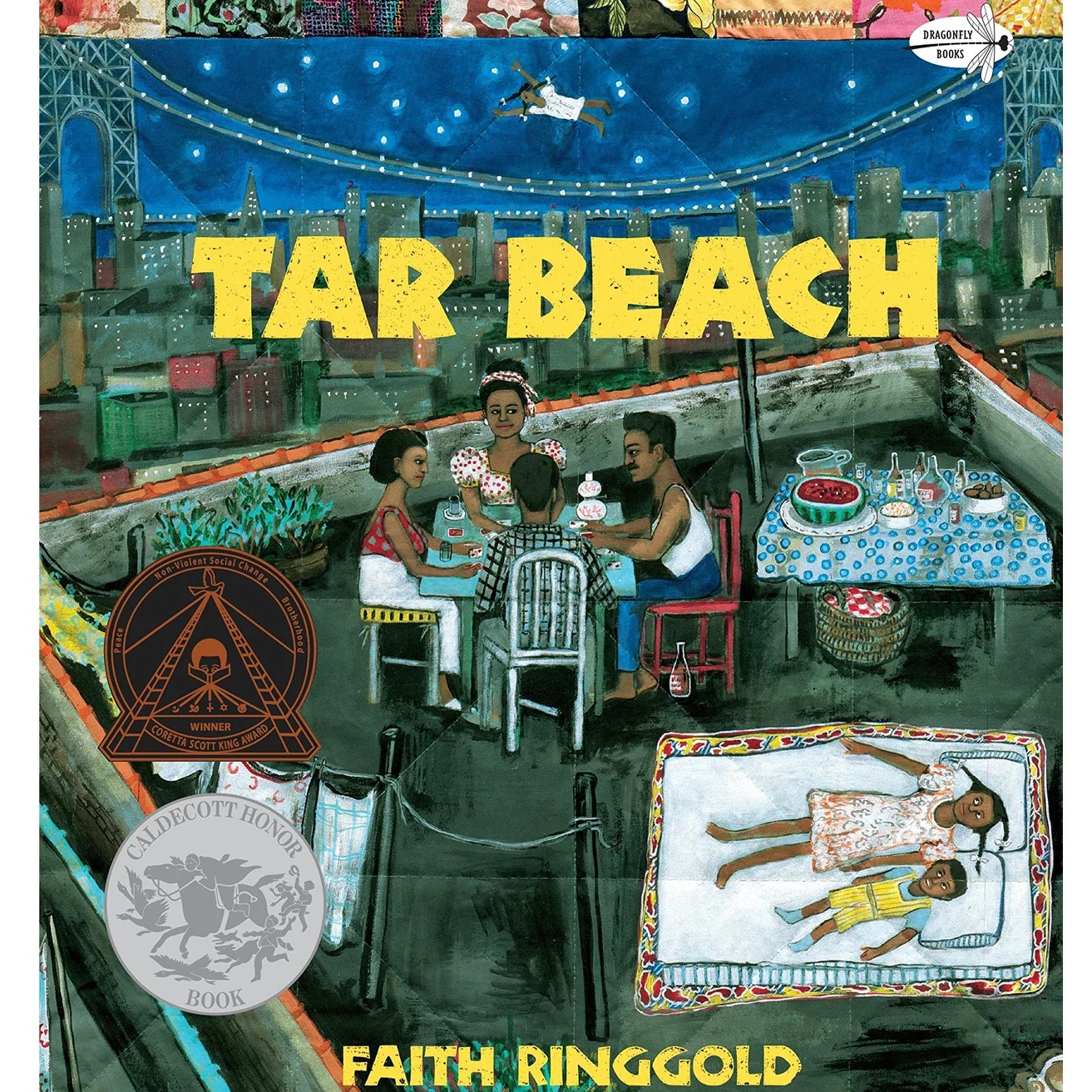Faith Ringgold, a courageous artist and activist whose “story quilts” wove rich tales of Black life and ancestral dreams, died on Saturday. Born on October 8, 1930, in Harlem, New York, Ringgold’s bold works and passionate advocacy left an undeniable mark on Black culture, the world of art and civil rights uprisings.
A daughter of Harlem, influenced deeply by the vibrancy of the Black Renaissance that echoed through her childhood streets, Ringgold’s art was a fusion of narratives filled with color, emotion and purpose. Her mother, a fashion designer, and her storyteller father imprinted skills that would define her artistic expression. Ringgold’s actions were bold despite the constraints placed on women and Black artists during her early career. In a 2012 interview with Makers, she said, “You can’t sit around and wait for somebody else to say who you are. You got to write it, paint it and do it.”
Ringgold was one of the pillars of the Black Arts Movement. Image: Melanie Burford/Prime/ The Washington Post/ Getty Images.
Ringgold’s activism was as vibrant as her art. In the late 1960s, she protested the exclusion of Black and female artists from major New York museums. Her arrest during The People’s Flag Show in 1970 showed her commitment to challenging injustice, using her art as protest. In 1971, she co-founded Where We At, a collective to support Black women artists.
Her innovative “story quilts,” like the acclaimed Tar Beach, broke artistic boundaries by blending quilted craftsmanship with illustrative narration, offering glimpses into the urban experience through a Black feminist lens. These quilts weren’t just art; they were history lessons, dreams and declarations of Black heritage and pride.
 Ringgold’s infamous children’s book and Caldecott Honor recipient Tar Beach. Image: courtesy of the Walters Art Museum.
Ringgold’s infamous children’s book and Caldecott Honor recipient Tar Beach. Image: courtesy of the Walters Art Museum.
Ringgold’s children’s books extended her influence to younger generations such as Tar Beach, winner of the Coretta Scott King Book Award. Ringgold taught children about the power of imagination against a backdrop of racial and social challenges. Her storytelling transcended mediums, making history accessible and engaging for children through works like Aunt Harriet’s Underground Railroad in the Sky and If a Bus Could Talk: The Story of Ms. Rosa Parks.
The world has indeed lost a powerhouse of creativity and advocacy with Faith Ringgold’s passing. Yet, her legacy is woven into the fabric of the countless lives she touched through her art and activism. Museums across the globe, from The Metropolitan Museum of Art to the Solomon R. Guggenheim Museum, safeguard her creations. Ringgold’s memory lies in the Black lives she empowered, those she inspired to dream, fight and live out the truth. As we remember Faith Ringgold, we recall her resilience, unwavering voice and undeniable spirit.



